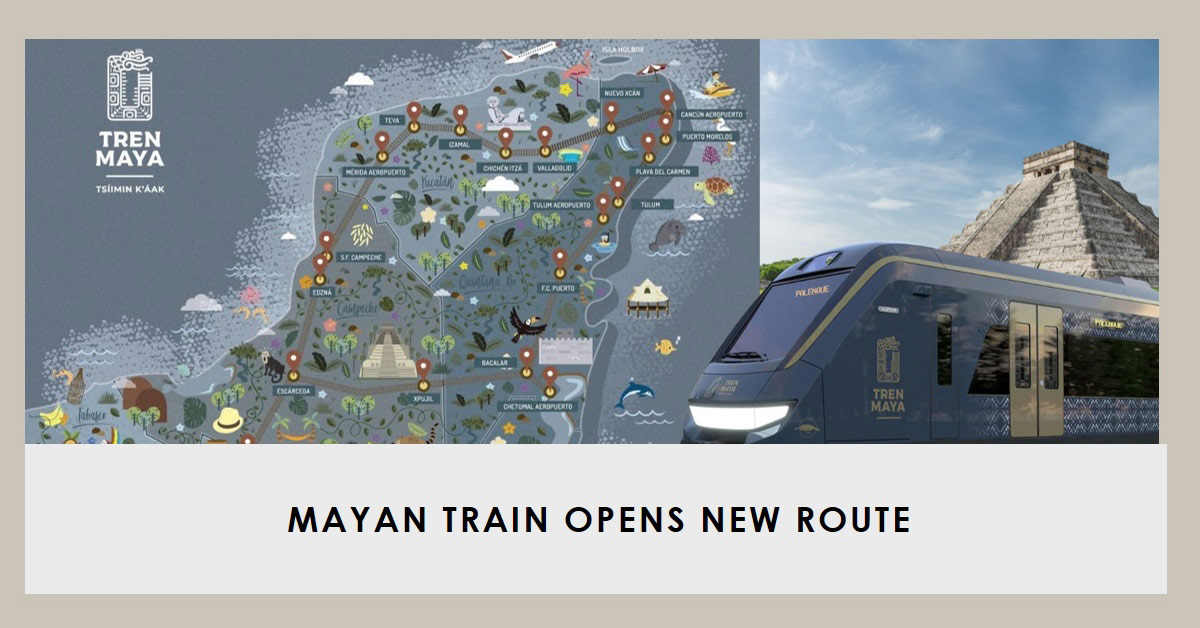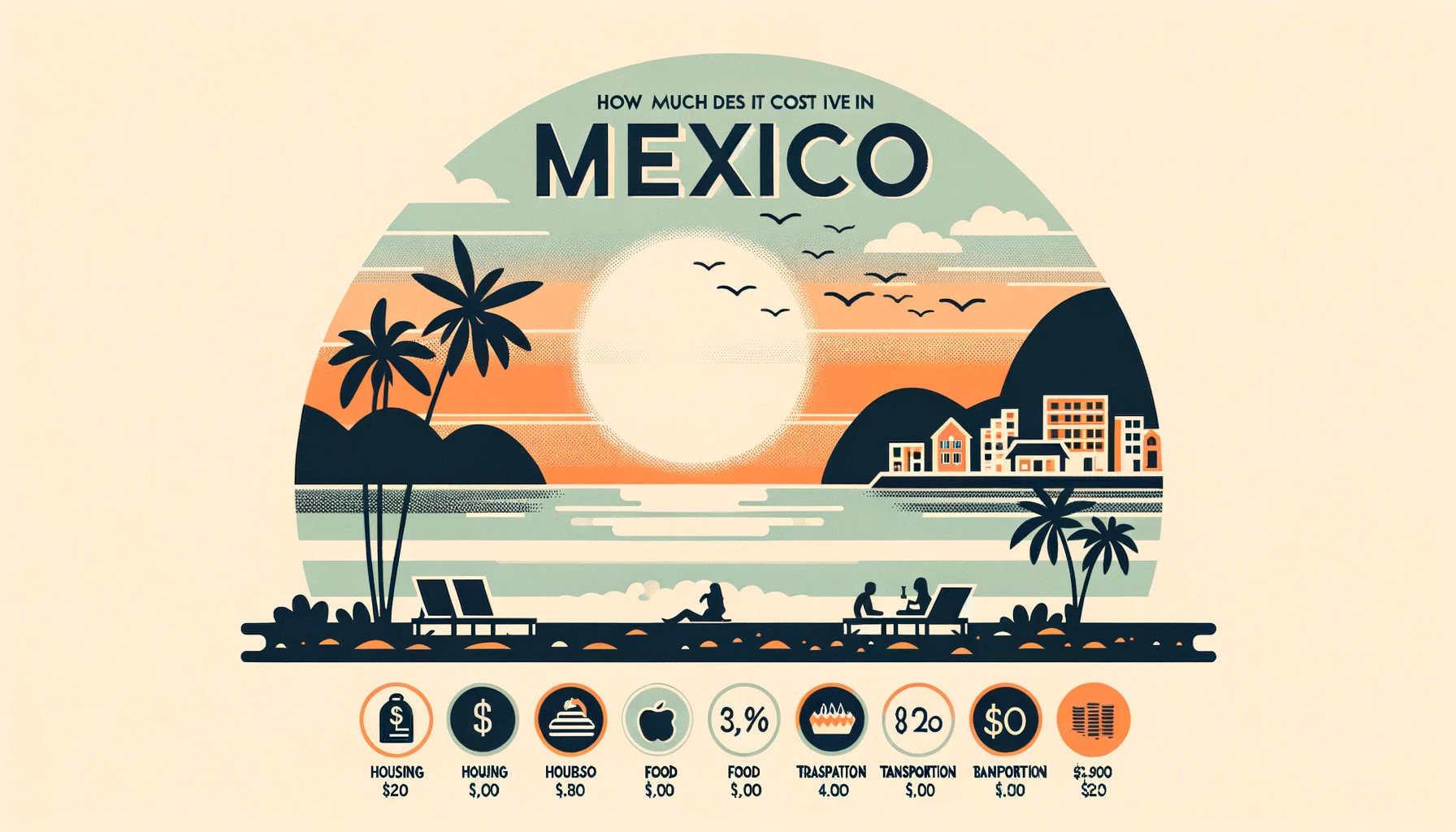Is Mexico Real Estate A Safe Investment?
Buying a property to live in or invest in Mexico is alien compared to purchasing in the United States, Canada, or Europe.
First, you don’t speak the language, so you must ensure you work with an ethical local company that knows how to buy real estate or property in the area you are interested in.
It’s easy to get caught up in the buying process and carried away.
It would be best if you remembered that some things stay the same. Don’t leave your common sense at home.
We often hear how many people take risks when buying a property overseas that they would never take when buying back home.
For instance, you meet a fantastic gentleman in a bar who tells you he can show you a great piece of Tulum that’s a significant investment.
He knows the owner who’s owned it for generations, and because it’s you, he’ll negotiate a special price.
He has a friend, the best attorney in town, who can do your due diligence for you for a special price.
Your newfound friend tells you that the land needs a permit before you can build your home, but you won’t have to wait months for that because he has a cousin in the planning department who can help…for a special price.
That’s the way things work in a foreign country, right?
You wouldn’t repurchase a property home this way.
You’d have an attorney and a broker you’d worked with before or who came recommended by friends and family.
You’d do your due diligence and comply with all the local laws and systems that regulate property ownership.
So why do things differently In Mexico?
You should do the same due diligence and exercise caution when buying back home.
To help you do your due diligence, we have compiled the following checklist with all the real estate you are considering buying in Tulum, Playa del Carmen, or Cancun.
We have tried to create a guide on purchasing real estate in Tulum, Playa del Carmen, and Mexico.
How To Evaluate Real Estate In Mexico?
1. Hire a local attorney
2. Buy title insurance
3. Check the sale contract
4. Check the title deed
5. Check permits and approvals
6. Check road access to your property
7. Check infrastructure essentials
8. Check the developer’s background
9. Check the master plan
10. Check the CCRs and HOAs
11. Investigate tax issues and wills
12. Use approved escrow services
Hire a reasonable, local, in-country attorney in Mexico.
Your U.S. or Canada-based attorney may work wonders for you, but he is not likely to be familiar with the intricacies of buying a property in Mexico.
It would be best if you had an in-country attorney.
Your local attorney should work for you—and only for you.
He should not represent anyone else in the transaction.
That may sound like a given…but an attorney can legally represent both sides in a transaction in many countries.
Your attorney should be bilingual. Getting to grips with a different buying process will be tricky.
If you can’t understand what your attorney is instructing you to do, the whole process could quickly become a nightmare.
Remember that while the U.S. and Canada have common law, civil law applies in most of the world.
Civil law is very black and white. There’s no pleading for fairness…you are either right or wrong.
Some terms may sound similar but will mean something very different. Joint tenancy with rights of survivorship is one.
You may have used it to avoid probate if one partner dies back home, but it does not apply in civil law.
It can be confused with tenants in common, which does apply in civil law—but it means you will have probate if one partner dies.
Explain to your attorney exactly what you are trying to achieve.
Please don’t take a seller’s word for it: have your attorney check everything they tell you regarding the property.
Also, have your contract translated and read it carefully yourself.
Ask your attorney to explain anything you don’t understand.
Your attorney may not present an average procedure clause in his country—but it may be very
different from how you’d do things back home.
If you are unsure how to find an excellent local attorney, do what you would do back home.
Ask friends, family, or colleagues if they have bought property in that country, and if so, which attorney they used.
Failing that, First American Title Insurance has a list of approved attorneys they work with in foreign countries.
You can ask for their list of approved attorneys in Playa del Carmen, Cancun, Tulum, or the Riviera Maya.
Buy title insurance
Title insurance is available in some countries overseas, and it’s affordable.
It can give you peace of mind.
Title insurance covers defects in title, property taxes, boundary disputes, and hidden defects (fraud, forgery, and unknown heirs)—up to the point when you buy the property.
You may ask your local real estate expert or realtor in Mexico if you need it,
Attorneys and notaries in Mexico are also human and can make mistakes.
A commitment to title insurance before making your final payment on a property ensures that you are paying the owner and that the title is good.
Not all title insurance policies in Mexico are equal.
Check what is covered with your real estate agent and Mexican lawyer to understand what is covered.
Check exclusions in your title insurance cover, varying from country to country.
Ask your attorney what is the thing that could most likely go wrong with your overseas purchase—and make sure it’s not ruled out in the exclusions and small print.
With title insurance, you are covered for events that have happened up to the point when you purchased the property.
Anything you are aware of at the time of purchase is not covered.
Future events—and that includes political risk—are also not covered.
Title insurance is a one-off payment and lasts as long as you (or your heirs) own the property.
In the case of a claim, the title company should cover defense costs and actual loss. If someone challenges your title based on a past event—forgery of documents, fraud, or someone selling a property that was not entitled to do so—then the title company should defend that title.
They either cover your defense costs, or they pay you your actual loss if they made a mistake, up to the amount of the policy.
If they defend, they hire a local attorney and monitor the litigation.
Court cases can be lengthy overseas.
It’s easier when a Mexico real estate professional handles that for you.
Developers often have master title insurance policies already in place on their land, which is a good sign.
It would be best if you still got individual title insurance, though—a developer’s title insurance covers them as an owner, not you.
Once they sell you a home site, a lot, or a condo, it’s no longer covered by their master title insurance policy.
There have been many changes in the title insurance market overseas in recent years.
Some better-known title insurance companies no longer offer coverage in some states of Mexico.
Others are only offering limited cover or raising their minimum charge per policy. This is not because they see these as high-risk locations; they’re not profitable enough for these companies.
We know a couple of expert Mexico attorneys who have worked with First American Title Insurance for decades. They run their own company to help buyers find the best title insurance policy today.
3: Check the sale contract
You may get a sale contract or purchase agreement in English—but the contract is in the language of the country you are buying in, legally binding, whether Mexico or other countries in Lain Amerca.
If you have a dispute with the seller, if you need to go to court, then the version in the country’s language will be the one you use.
Have your attorney translate the sale contract for you and read it yourself.
Ask your attorney to explain any clauses or terms you are unsure of.
Check that the property details, description, and price are correct.
Check that the seller’s name matches the name on the current title deed.
Your attorney can check that your sale contract/purchase agreement gives you title, free and clear, on closing.
Surprisingly, sometimes the contracts don’t.
We have seen a few that give you possession of a condo in a block and the keys but not the actual, registered title…the developer stated that he would write it at some point (with an undefined period).
I’ve also seen a few that gave title but did not include a mechanism for the developer to pay off the portion of his mortgage related to your property.
For that reason, if a developer has a mortgage, check how he proposes to pay it off and how that affects your title.
Make sure that there are no outstanding taxes or liens on the property.
Unfair penalty clauses are an issue with contracts, too.
If a seller has clauses stipulating precisely what will happen if you are in default (and apply financial penalties), you should have the same if the seller is in default.
Some standard developer contracts for pre-construction property state that if you, as a buyer, default for any reason (including making a late payment, even if it’s only by a few days), you will lose whatever money you have paid.
Check for any price adjustments.
In some states of Mexico, developers have an override clause stating that if condo or home construction costs increase during the build period, they can charge an additional fee based on a percentage of the property’s purchase price.
That percentage can be as high as 10%…so if you agreed a purchase price of $100,000 for your condo, you could end up paying $110,000.
The additional fee is payable on closing in some parts of Mexico, and developers are supposed to prove that construction costs have risen using government figures and statistics.
If you have developer financing on the purchase price balance after completion, there is a monthly adjustment for that, too.
These adjustments are linked to government-produced indices.
Check the title deed.
Your Mexico real estate attorney will check the title chain in the registry.
In some countries, the registry is online; in others, it is a case of leafing through physical documents.
Sometimes, your attorney must use a notary public to check the documents.
From that title check, your real estate agent and attorney should be able to tell you the current registered owner and value, the boundaries, previous sales, and transfers.
Are any liens, mortgages, or taxes outstanding on the property, and are there any annotations such as rights of way, etc.?
Make sure that your seller is the property owner.
Check if your title is registered or possessory.
In some countries, they can seem similar.
You can live in a Rights of Possession property, record your claim, and sell it.
There is a difference, however.
The registered title means you own the land.
Possession means you have the right to occupy the property until someone with a better claim to it turns up.
You cannot get mortgage financing on a possessory property, either.
Check the title chain. If it includes a cooperative or confiscation, your real estate attorney in Mexico must do extra checks to ensure the title is clear and all transfers were done correctly.
Beachfront and border properties should be checked carefully.
Most overseas countries have a section of the beach related to the high-water mark where you cannot legally own a property.
Internation / foreign buyers are usually not allowed to own
property that borders a neighboring country, either.
The distances for these zones are not standardized but vary from country to country.
In some areas of Mexico, foreigners cannot legally own property outright.
There are ways around this…but ask your attorney to investigate thoroughly.
Check the permits and approvals
They’re becoming more difficult to get and more expensive.
There’s quite a range of them, varying from country to country.
The standard ones are environmental, water, construction, and municipal permits.
Have your real estate attorney in Mexico check to ensure your seller/developer has all the permits and approvals he needs to comply with current regulations before the construction starts.
Many countries require developments to have developmental and environmental pre-approval before they can legally market or sell a property.
That process can take up to two years, and until pre-approval is granted, the developer cannot start selling—or construction.
You could say that you are happy to wait for one last permit to be granted to a developer or seller—but make sure that your money is escrowed if so.
And by escrow, I mean with an established company like First American Title Insurance—an approved escrow.
Otherwise, you could find that the development does not get the green light and may find it tough to get your money back.
In some countries, you can see houses for sale that never applied for planning approval or had initial support but subsequently added an extra unapproved bedroom or garage.
This is particularly true in rural
areas. Sometimes, you only need to pay a fine or tax to get retrospective approval.
Have your attorney check for you; ideally, contact the seller to legalize the property before you buy it.
Check road access
How do you get to your property?
If it is via a right-of-way through someone else’s property, that must be stated in the deed.
Similarly, has anyone else got rights of way through your property?
Your attorney can check both of these scenarios.
Check infrastructure essentials
You can’t live without these services, and you should ask the seller as many questions as you need to ask to feel comfortable before proceeding with the sale.
Water:
Is there a source of drinkable water on the property?
What’s the water pressure?
What’s the purity?
If there isn’t a mains supply, who will drill a well? If it is you, how deep will you have to hit—and how much will that cost?
How is the waste treatment being handled? And does it comply with local regulations?
Will the developer place a municipal system, or will you need to put it in a septic tank?
If a septic tank needs to be installed, check local regulations to see how much you will have to spend (some environmentally sensitive areas require a very high-tech and expensive tank).
Electricity:
Is it currently…if not, what timeframe will it be installed?
What kind of cost are you considering if you have to run the new services?
Are some of your neighbors willing to pitch in on that cost?
Access to the Property
Are roads and pavements already in place, or are they in good shape?
If not, when will they be…and what standard will they be?
Remember, developers often leave roads until last, as road surfaces can be damaged by heavy construction equipment.
If high-speed Internet or WIFI is necessary for your job or business, check that it is available in your area.
Ask what the download and upload speeds are in MB (megabytes).
High-speed or broadband Internet in some countries I have visited is terrible. We have had the best luck with Total Play for our new homeowner purchases in Mexico.
You can try to cover yourself by ensuring your contract has the essentials’ firm timelines, standards, and commitments.
Some developers will allow you to escrow a portion of the purchase price until they are completed.
Check the developer’s background.
If dealing with a pre-construction development, ask if your developer has developed.
If so, where and what was the finished development like?
Can he provide you with written testimonials from previous buyers?
How is your developer financing the project?
If he has loans or mortgages, how is he proposing to pay them off?
If he is committed to repaying those before he starts construction, that is not ideal for you.
Does he need money from sales to finance the project?
How likely is he to achieve that sales level in the current market?
Bank financing often kicks in when a developer has sold 20%-80% of the project.
The bank decides that percentage based on several factors, including the developer’s track record and the market in which he operates.
Banks are becoming more cautious in the current economic downturn and tightening lending restrictions.
It is preferable for you if the developer starts construction when he is 20% sold rather than 80%.
Most developers do not build themselves.
They hire a construction company. What is their background and record?
Can you see some of their finished projects to see if you are happy with the quality of their work?
See if the developer has insurance that covers him if his constructor goes bankrupt, can’t complete the work, or fails to complete it satisfactorily.
Insurance still means a delay waiting for the funds to re-start construction, but it’s better than the alternative of a half-finished project.
Check the master plan.
With pre-construction developments, make sure that amenities promised in the master plan are in writing in your contract, if possible, with timelines and standards…the swimming pool, the clubhouse, and landscaping.
Imagine how you would feel if you only got some or all of those promised amenities—a small pool rather than the Olympic one, or no pool at all.
Amenities are usually the last items installed in developments and the first that suffer if a developer runs short of cash.
If the developer has reserved areas or green space, see if they will be preserved or used for future development. Similarly, find out its plans if there’s empty land next to the property.
Check the local municipal developmental plan, if there is one, and see if roads or factories are planned nearby.
Similarly, check out the local area…is there a municipal dump nearby or a truck park near your new home?
Check the CCRs/HOAs
With the CCRs (Covenants, Conditions, and Restrictions), ensure you can’t live with nothing.
Keeping sure pets may go against CCR rules. Working from home usually carries restrictions related to your work type.
See what standard of maintenance you are obliged to carry out on the exterior of your property and what remodeling is allowed.
Perhaps renting your property for vacation rentals or Airbnb can give you a good cash flow above your mortgage costs.
Make sure that the rules are tight enough that what your neighbors do won’t adversely affect you.
If you don’t want a purple three-story house next door…chickens in the neighbor’s yard waking you in the early hours…check those CCRs. I’ve seen all of those developments without strict CCRs.
Who will manage the HOA (Home Owner’s Association) initially?
If it is the developer, when is the handover date?
What are the projected monthly dues?
Can the HOA enforce collection?
One development I saw had roads and pavements in terrible condition, with potholes and badly worn surfaces.
Maintenance was impossible as owners did not pay their monthly dues, and the CCRs had no mechanism for enforcing payment.
Who will manage the homeowner or the monthly charges?
What checks and balances are there to ensure that funds are managed correctly?
Around 20%-25% of your monthly dues should go into a reserve fund to cover significant problems.
Are the CCRs and HOAs tied into the property deed?
Are they enforceable against future owners if the current owner sells?
Please don’t assume they are enforceable because CCRs are in your deed.
They must also be set up under a proper statutory regime that varies country by country.
Investigate tax issues and wills
Discuss with your attorney the best way to hold your property overseas.
For example, whether you hold the property in the name of an individual or a corporation is dictated by your circumstances and your plans for the property.
Do you want to hold it long-term, sell it before completion, or use it for rental income?
Ask what happens if you die (not a pleasant subject, I know, but it needs to be surfaced).
You may need two wills, one in the country you are buying in and one back home.
If you are a couple, how would the death of one partner affect the property ownership?
Use approved escrow services.
You are almost at the end of the checklist and probably ready to start paying the seller.
We advise that you use escrow services at that stage, and we mean approved escrow services, such as those offered by a local real estate attorney.
Developers and attorneys will have escrow accounts, but they are often no more than a separate bank account in the developer’s or attorney’s name.
Finally, remember that buying a property overseas is exciting and potentially one of the most profitable investments you can make.
You must do your homework and ensure you work with a professional team when buying real estate in Tulum, Cancun, Playa del Carmen, or Mexico.
Please contact us if you have any questions about buying real estate in Tulum, Playa del Carmen, or Tulum.
Related Posts
- Mexico Real Estate Terms and Definitions
Introduction When it comes to buying or investing in real estate in Mexico, it's essential…
- Can Expats Buy Real Estate In Mexico
FAQs about Buying, Investing or Renting Real Estate in Mexico Tulum is a gorgeous city…
- How to buy land in Mexico as an American or Expat
Buying Property in Mexico as an American or Expat The Complete Guide 1. Restrictions on…
- MLS Real Estate Listings In Tulum, Playa del Carmen, and Cancun, Mexico
Search Our Mexico MLS for Real Estate and Homes for Sale Are you looking to…




